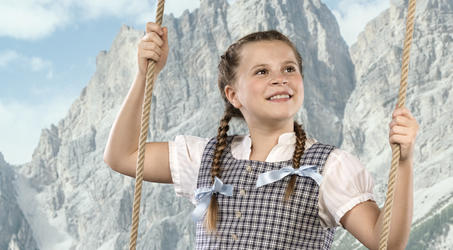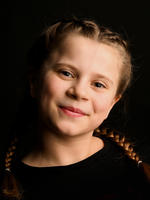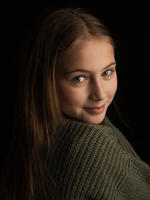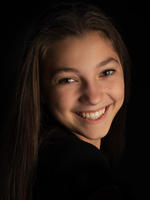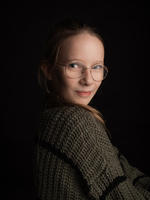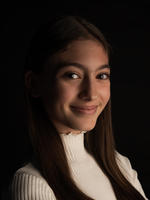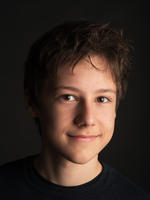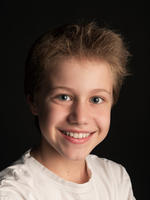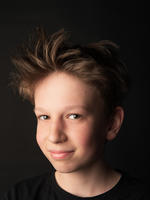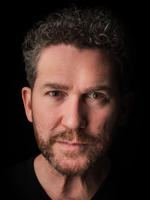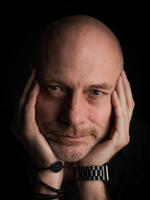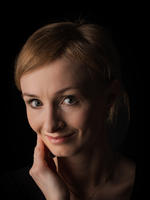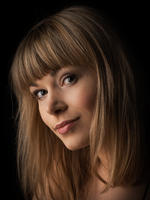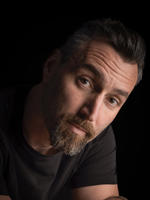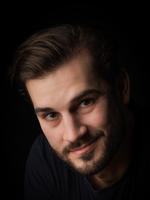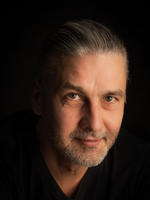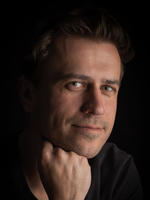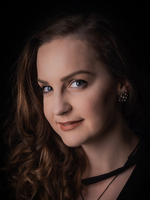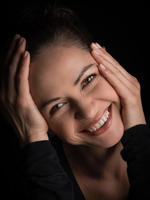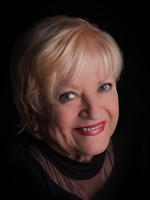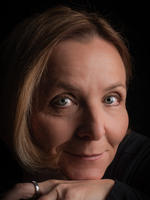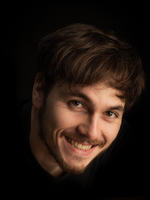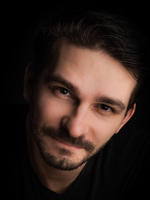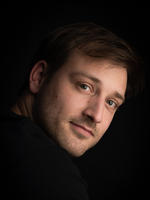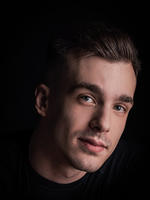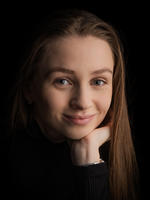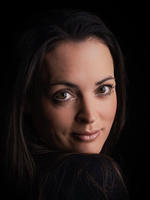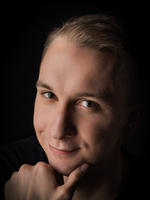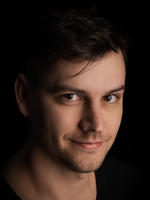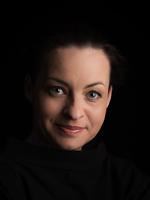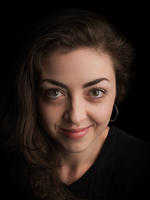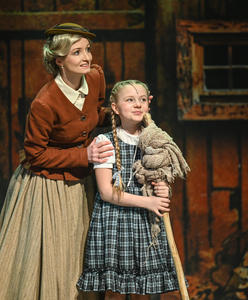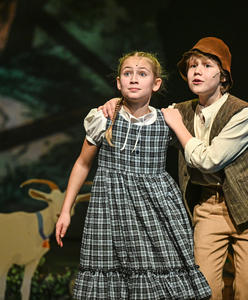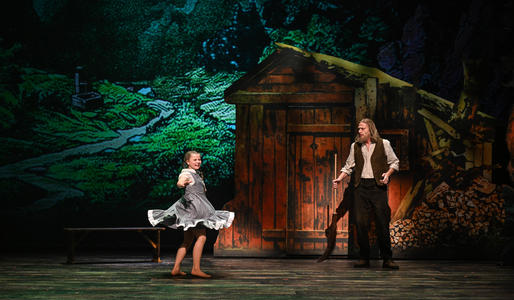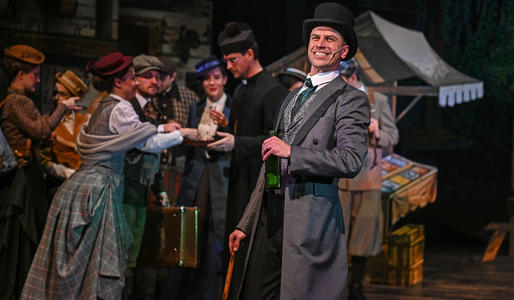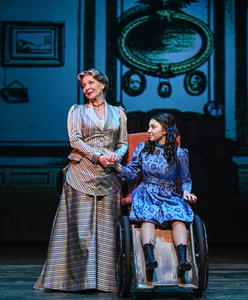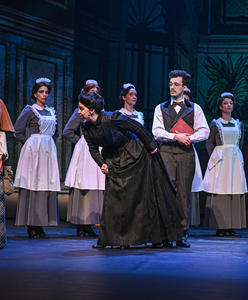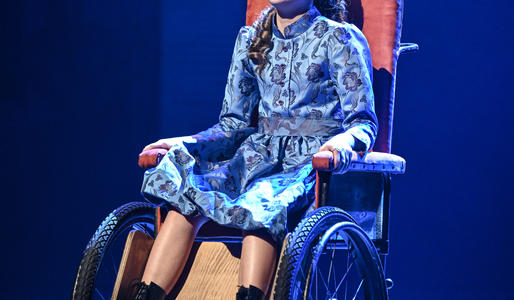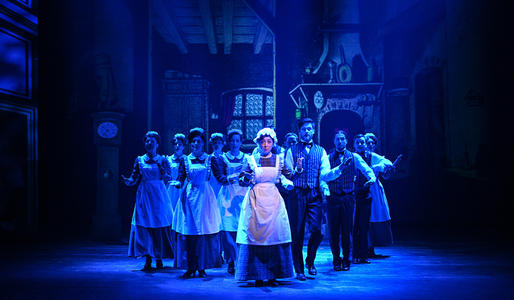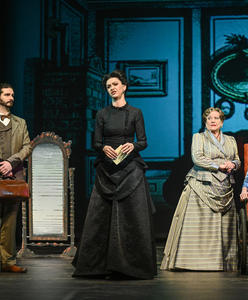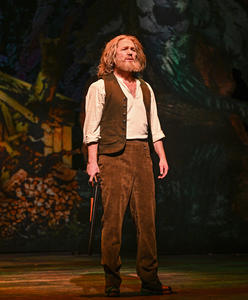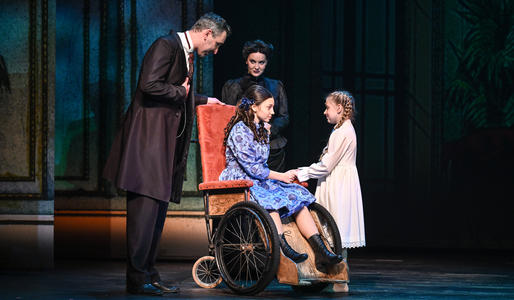Heidi… and to Life!
Josef Meszáros 22. January 2024 zdroj www.scena.cz
(…) At the beginning of the premiere, director Stanislav Moša welcomed the author of the script himself, Hans Dieter Schreeb, and at the same time emphasised the purity of childhood, which continues to be entwined with the lives of every one of us even in adulthood, because none of us know the extent to which we have remained children and those around us, in particular, may not see our inner child.
After the opening musical prologue based on Swiss folk music, in which the musical motif is straightforward and, most importantly, melodious, this simplicity is gradually transformed into a rich orchestrally instrumental sound. This naivety is appropriate, because the theme here is the depiction of a child’s fate in the world. Christoph Weyers’ set and Andrea Kučerová’s costumes correspond to this storyline.
Director Stanislav Moša has opted for a simple baroque theatre spectacle using “merely” backdrops on the horizon in the spirit of a Swiss mountain village and a landscape with mountain views. He has, however, elevated this simplicity with modern technology thanks to digital projection, thereby achieving a graphic quality and, most importantly, conjuring up some magic at the click of a finger. The finishing touches to this illusory flatness are provided by the addition of flat sections depicting home furnishings, a kitchen, a cellar, a cottage, a rock and so on to the space. These are again in 2D, though they manage to create the illusion of space. The same is true of the herd of goats. Again illusory and on wheels, and illusory goat bleating goes well with this. Thanks to this, he has stolen the thunder of the animal protectionists, and the audience has no problem with it. Andrea Kučerová’s costumes are lavish and practical. They are based on English fashion combined with a Tyrolean spirit. They add freshness to the characters, while at the same time underscoring their social status.
Actor direction is again of the utmost importance, particularly when working with child actors. (…) The title role of Heidi was portrayed by Karolína Čtveráčková, who gave her young character a large measure of pure and kind-hearted energy and, above all, humility combined with great empathy for every person, whether an adult or someone of her own age. She was believable, for example, in the scene in which she is sleepwalking and half-asleep reciting her text in the arms of the doctor. Kryštof Helbich is a truly seasoned professional who draws the audience in with his naturalness. As the goatherd, he quite masterfully handled, for example, the passage in which he introduces Heidi to the secrets of nature when he tries to protect her from a storm along with his herd. He was also good in the moments when he displays his jealousy after Clara’s arrival. The third child actress is Gabriela Čtveráčková who portrays the wheelchair-bound character Clara. Her pessimism and the way in which she exposes the comforting veneer that adults put on things is true and convincing. She also did a wonderful job in depicting her recovery process and perfectly demonstrates all the stages from clumsy first steps to healthy walking.
The children are not on the stage on their own, but are surrounded by adults. Robert Jícha as Grandfather Conrad presents himself to the audience as an impervious curmudgeon, although it is gradually revealed that this is just a protective outer shell. An extremely profound transformation takes place when his first separation from Heidi is about to occur. He is also wonderful in the dreamlike connection with Heidi and the goatherd Peter. Jícha’s impenetrability is aided by his costume and his beard and hair. The authors have given him deep positions in the singing parts, often in soft tones at a slow rhythm bordering on the recitative. Jícha mastered these potential pitfalls as well.
Fräulein Rottenmeier, played by Ivana Vaňková, is a wonderful role for an actor. Unlikeable, and yet… She runs the entire Sesemann household in an exemplary manner. With a great sense of order, she actually becomes villainous. She particularly scares the audience when she welcomes Heidi. Expressions like “that beast” etc. are truly chilling. It is common knowledge that roles like this are rewarding for an actor, and Ivana Vaňková has given ample confirmation of this, largely due to the writers who at the end allow her to apologise to Heidi and accept her as a child rather than as a thing.
The musical Heidi is another addition to the long line of family shows at Brno City Theatre.
It offers viewers the directness and purity of a child’s view of the world, and that’s no bad thing. (…)
The Power of Friendship and the Beauty of Nature
Lukáš Dubský 22. January 2024 zdroj www.i-divadlo.cz/blogy
(…) They have been successfully working with child actors for a long time in Brno, which is why they were able to present the megahit Matilda here at such excellent quality. And they are not afraid to entrust children with challenging roles this time either, which differentiates them from the German-language productions of this work in which adult actors played the main roles. Of the central trio of actors, I was most captivated by Gabriela Čtveráčková, who had to handle difficult singing solos in the role of the handicapped Clara Sesemann. Kryštof Helbich is a natural as Peter, and the mischievous role suits him. Karolína Čtveráčková is bursting with energy as Heidi, to the point where I felt like she could hardly catch her breath in some scenes.
But even the adults impress. Although Robert Jícha seems a bit youthful in the role of Grandfather Conrad, his beautifully rich voice makes up for it. Ivana Vaňková shines in a small role as the uptight governess Fräulein Rottenmeier, who she makes perhaps the funniest character in the production.
(…) Director Moša has conceived Heidi as a fairytale, and the sets correspond to this. Those who expect stage magic from Christoph Weyers of the kind we have seen in a number of the other productions he has put his name to at Brno City Theatre will probably be disappointed. The basis of the set are side backdrops and back projections, both conceived in a deliberately naïve spirit. The unrealism of the backdrops is also put to good use in the production when Heidi and Peter drive the goats to pasture in the form of toys on wheels. In contrast, the costumes designed by Andrea Kučerová correspond to the period at the end of the nineteenth century in which the story is set.
Heidi may be no musical masterpiece like the aforementioned Matilda, but its kindness and friendliness towards a child audience make it a rewarding treat for an audience looking for an escape from reality in the theatre to the times of carefree childhood.

